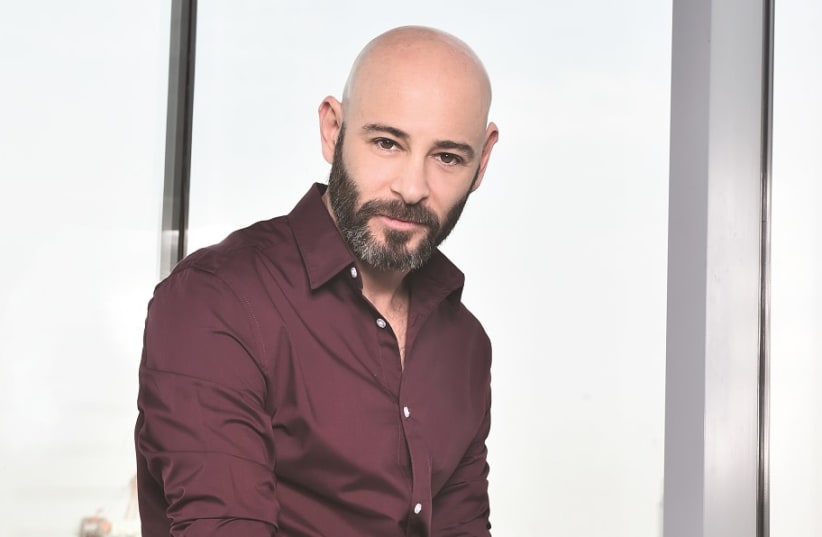“Personalized cancer medicine - this used to be the future and now it is the present,” Dr. Yoav Manaster, CEO of Progenetics recently told The Jerusalem Post.
Progenetics, founded by Manaster in 2015, bridges the gap between standard medicine and the cutting-edge oncological diagnostic services available today - bringing these innovative technologies to Israeli doctors and patients.
Manaster sat down with The Post to discuss trends in the world of oncology diagnostics, personalized medicine, and the impact of the coronavirus pandemic on cancer care.
“Today the idea is to dive deep into the genomics of the tumor of the individual patient and not talk about statistics, but about what you can derive from the genomics to see what treatments can work best for the individual patient and what should be avoided,” he said.
As such, Progenetics, representing more than 10 US companies in Israel, offers a wide range of diagnostic tests for cancer patients.
“For metastatic cancer patients we try to turn every stone to find mutations that drive the tumor and can be targeted by biological treatments or immunotherapies,” he said.
“Or when you have local tumors that haven’t spread, the question could be whether to treat or not, so we can save a lot of unnecessary treatments by better diagnosing the aggressiveness of the disease,” he added.
As such, Progenetics offers tests like the Breast Cancer Index aimed to avoid unnecessary hormonal treatment, the 4K-Score for ruling out aggressive prostate cancer and avoiding unnecessary biopsies, and CARIS, a comprehensive genomic test for tailoring the treatment of metastatic patients.
“Imagine a patient who had breast cancer five years ago, had surgery and is scheduled to receive five more years of post-surgery hormonal therapy, which has a lot of side effects,” he said. “We have a test that can tell is a woman would respond to this therapy - this cuts 50% of unnecessary treatments.”
According to Manaster, only 25% of patients respond to a given anti-cancer therapy. “Personalized medicine can tell you which treatments will work for you and which ones won’t, so you can really tailor the treatment for each individual.”
The most cutting-edge test, he said, is Signatera, which monitors the residual tumor that might remain in the body after tumor resection.
“A tumor might not show up on a PET- CT, but the disease might recur, so the idea is to find tools to catch it and treat it at a much earlier stage,” he said.
While all these tests and more remain available to Israeli patients, Manaster said the coronavirus pandemic had a negative effect on cancer care.
“Unfortunately, during the pandemic cancer patients visited their doctors less, many are older people, and they were afraid because of the virus,” he said. “So, it is estimated that many patients will die from underdiagnosis and undertreatment, as we saw a drop in screening tests.”
He estimates that the world will see the peak of the damage from the decline in screenings in two to three years from now.
Today, though, he said, everything is “back to normal” in terms of cancer care. “At the end of the day people are more afraid of cancer than of the coronavirus.”
One positive outcome from the pandemic, he added, is the “empowerment of patients.”
“This concept is that patients are more involved, more educated, and more the masters of their journey of managing the disease,” he said. “With corona, and all the skepticism about closures and vaccines, patients are now much more involved in the discourse - the medical discourse in general and managing their own disease in particular.”
Still, while massive progress has been made in personalized medicine, Manaster said Israel still has a long way to go until it truly implements this field.
“Preventative medicine is something everybody wants but nobody is willing to pay for it because there are no heroes,” he said. “Israel’s medicine is one of the best in the world, but in terms of onco-diagnostics, there is a blind spot when it comes to reimbursement and utility.”
In comparison, in the United States when it comes to diagnostics, he said it is “heaven on earth” as the vast majority of diagnostic tests are reimbursed by insurance. “Everyone talks down about the US medical system but for this specific field it is better than anywhere else in the world,” he added.
Still, when looking to the future Manaster remains very optimistic.
“The field of personalized medicine and diagnostic testing is a booming field,” he said.
Genomic testing nowadays can bring a lot more accuracy, digitization and the future of this field, he added, is in artificial intelligence (AI).
“When you have all the genomic comprehensive data on the one hand and you have the outcomes on the other hand, you give this information to the machine to see what genomic signatures resulted in what outcomes,” he said. “These in turn will lead to far better diagnostic tools and complete the revolution of personalized medicine.”
The future, he said, is already knocking on the door.
This article is taken from The Jerusalem Post Annual Executive Magazine 2021-2022. To read the entire magazine, click here.
This article was written in cooperation with Progenetics
